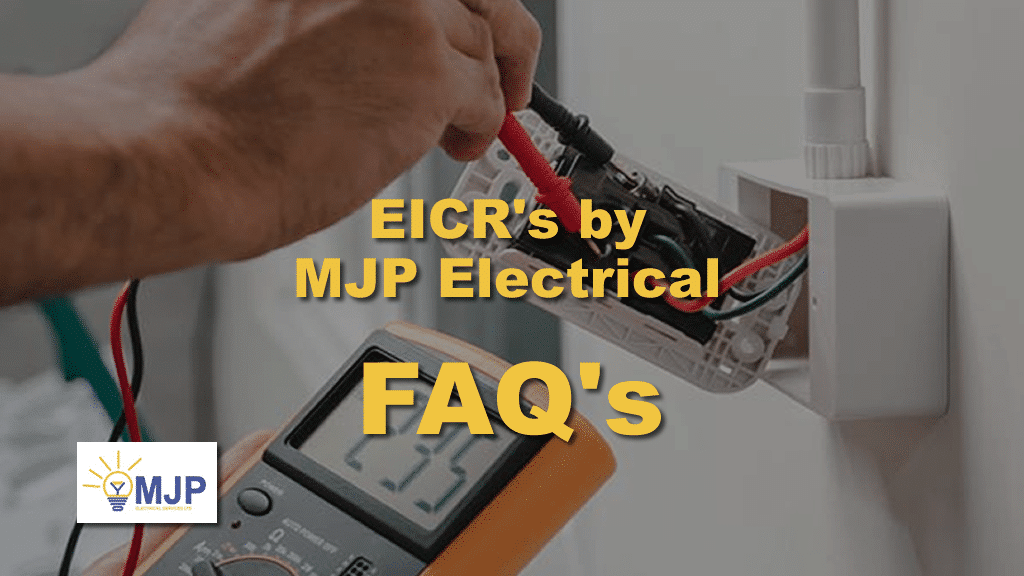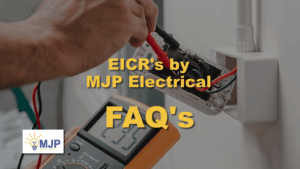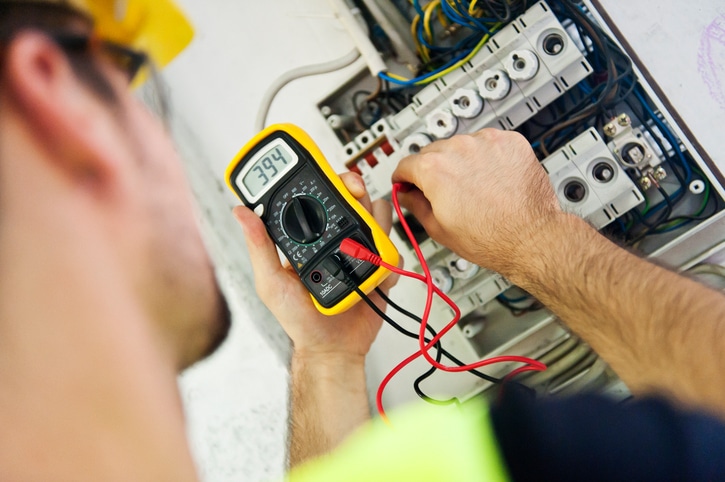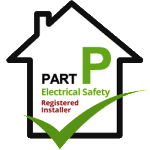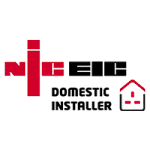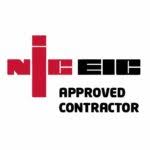When it comes to having an EICR, there are many myths being thrown around and this can lead to homeowners worrying that their property won’t be up to standard.
I often get asked whether a plastic consumer unit is reason enough for a property to fail an EICR. In fact, after looking at statistics, I found that this was the number one question from homeowners before having an EICR.
So, if you’ve got a plastic consumer unit and it’s time to have an EICR, allow me to put your mind at rest.
Will A Plastic Consumer Unit Fail An EICR?
I’ve heard horror stories about unreasonable electricians failing an otherwise safe property because of a plastic consumer unit.
But the truth is that, at the moment, having a plastic consumer unit is not considered to be a code one on an EICR.
However, there is a fine line between what is considered to be safe and what might need some attention.
For example, while there have been changes to the regulations on suitable housing materials for a consumer unit, this does not necessarily apply to plastic consumer units that are in good working order.
Where there is damage or other faults with the equipment, this may go down as a fail but that’s not based on the material of the unit.
In some cases, having a plastic consumer unit will result in an advisory on your EICR as it is considered to be safer with metal housing.
However since the new regulations regarding housing materials were only introduced in 2016 under the BS 7671:2018 edition, authorities are lenient and understanding of the fact that many new plastic consumer units are still in use. As long as they were installed before the regulations changed, they won’t be considered a fail.
Are UK Landlords Required To Have A Metal Consumer Unit?
The laws for landlords are very different to those for domestic property owners who dwell in their own properties.
For example, landlords are required by law to have an up-to-date EICR whereas private homeowners are not. Moreover, where an EICR includes a number of code ones, UK landlords are legally required to have issues fixed within 28 days. On the contrary, private homeowners can make a decision as to whether they have the work done or not (of course, it’s always a good idea to take your electrician’s advice for your own safety.)
When it comes to plastic consumer units, there have been a lot of stories that UK landlords must upgrade to a metal unit.
Now, while I agree that it would be wise to have a metal unit as these are considered to be much safer, it’s not currently law that landlords have to have one.
Your electrician may advise this but until it becomes a code one on your EICR, you’re not obligated to upgrade the unit.
That said, it is worth considering the possible risks associated with plastic consumer units and weighing up the pros and cons of investing in an upgrade. As a landlord, the buck stops with you when it comes to safety and since upgrading your consumer unit costs just a few hundred pounds, it’s often a wise investment.
What’s The Problem With A Plastic Consumer Unit?
All this talk about plastic consumer units may have left you feeling confused. I mean, what’s so bad about plastic? Isn’t this a material that’s been used for decades without any problems?
Well, you may have thought so but research has shown that most electrical fires start in the consumer unit. Now, it isn’t because a consumer unit is plastic that increases the risk of fire, it’s the fact that plastic is a combustible material.
By having a unit that is made from non-combustible materials, like metal, the associated risks of a fire are reduced. For example, when plastic burns, it can release toxic chemicals which may be harmful to human health. And it doesn’t have to be a full-blown fire that causes the release of these fumes. Even in cases where there’s a fault with the consumer unit that causes excess heat, toxins can start to be released.
What’s more, plastic consumer units are likely to become a part of a larger fire meaning that any fire that starts within them is more likely to spread. Coupled with the fact that most consumer units are located along escape routes, this could hinder the safe and successful escape of any occupants.
During tests completed by the London Fire Brigade, it was demonstrated that metal consumer units were much more easily able to contain the fire within the unit.
Do You Own A Commercial Property?
For commercial property owners and managers, ensuring the safety and compliance of electrical installations is not just a matter of safety but also a legal requirement.
Commercial properties often face stricter regulations compared to residential properties due to the complex nature of their electrical systems and higher usage demands.
Regular EICRs are crucial to identify potential electrical hazards and prevent costly interruptions to business operations. Contact MJP Electrical if your looking for a commercial EICR report for you business property.
Should I Upgrade My Consumer Unit?
One of the first questions you should ask yourself, especially if you are a landlord, is ‘Is my consumer unit compliant with regulations?’ If it is not then yes, you should upgrade your unit.
Any plastic consumer units that were installed before 2016 do not meet the current regulations which were updated in the 18th edition I mentioned earlier in this guide.
That said, for private homeowners, it’s very much your own decision as to whether you make the upgrade but in the interests of safety, it is strongly advised.
Of course, if you have an EICR, any faults with the consumer unit will be highlighted and I don’t think that anyone reading this would be able to sleep at night knowing that there was a risk of an electrical fire.
If you are worried about the cost of upgrading your consumer unit then you have to think about the cost and stress of repairing fire damage in the event that the unit catches fire. The few hundred pounds that you would need to spend replacing your unit is by far the most preferable option in terms of finances.
Book an EICR Now!
Ready to ensure the safety and compliance of your electrical installations?
Take the first step towards peace of mind with MJP’s EICR service.
Schedule your EICR now!


